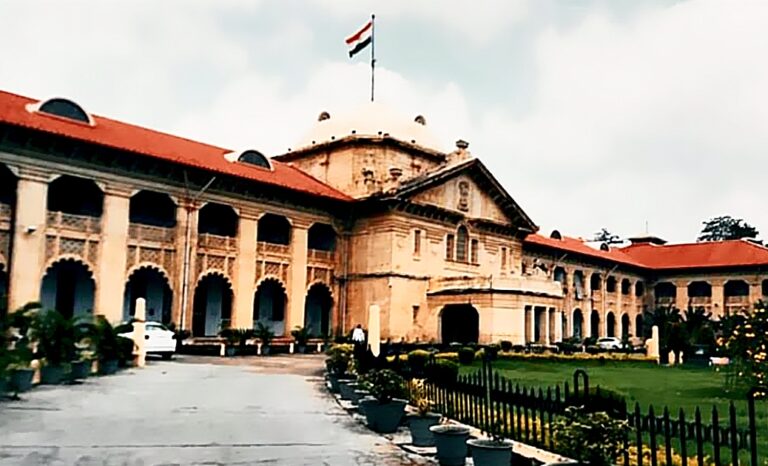In a significant relief for taxpayers under the Goods and Services Tax (GST) regime, the Allahabad High Court has quashed a penalty imposed on Exch. Therm Engineering Company under Section 129(3) of the Uttar Pradesh GST Act, 2017, citing procedural lapses and lack of tax evasion intent.
Background of the Case
The penalty was levied due to the non-filling of Part B of the e-Way Bill, a mandatory component under GST transport rules. The writ petition challenged the penalty order dated May 1, 2018, and the appellate order dated March 15, 2019, which upheld the penalty. The goods were accompanied by a valid invoice containing the truck details, and no discrepancy in the goods was found during inspection.
Representing the petitioner, Advocate Ms. Pooja Talwar argued that the omission was purely technical and not deliberate. She emphasized that the vehicle number was clearly mentioned in the invoice, and there was no evidence suggesting any intent to evade tax. She cited earlier judgments, including VSL Alloys (India) Pvt. Ltd. and M/s Citykart Retail Pvt. Ltd., to support the view that technical lapses in e-Way Bill compliance, absent fraudulent intent, do not justify penalty under Section 129.
Key Legal Arguments
Section 129(3) empowers authorities to detain goods and impose penalties when there is tax evasion or intent to evade tax. However, Ms. Talwar stressed that the authorities had not established any such intent in this case. The sole basis for penalty was the omission to fill Part B, despite full details being present on the invoice.
State’s Position
Sri Rishi Kumar, representing the State, defended the penalty based on the appellate order’s findings, which noted the Part B omission as a statutory violation. However, he did not present evidence of malafide intent or tax evasion.
Court’s Findings and Decision
The High Court analyzed the facts and referred to its own precedents—M/s Citykart Retail Pvt. Ltd. and VSL Alloys (India) Pvt. Ltd.—to evaluate the legitimacy of the penalty. It observed that:
-
The truck details were clearly mentioned in the invoice.
-
The goods matched the documentation provided.
-
No underpayment of tax or fraudulent activity was alleged or proven.
-
The omission was a technical lapse, not a deliberate attempt to evade tax.
The Court reiterated that Section 129 is a stringent provision, and penalties under it must be based on evidence of intent to evade tax, not minor procedural lapses. It quoted from its earlier rulings where it held that clerical errors, such as failing to update Part B, cannot attract severe penalties if the transaction is genuine and tax-paid.
Judicial Precedents Reinforced
The judgment solidifies a growing body of case law that distinguishes between technical non-compliance and tax evasion. In the VSL Alloys case, the Court held that detaining goods or vehicles should only happen in clear cases of tax evasion. Similarly, in M/s Citykart Retail, it was held that non-filling of Part B, when acknowledged as an issue even in government advisories, does not justify penalty when vehicle details are otherwise available.
Conclusion and Relief Granted
Setting aside the penalty and appellate orders, the Allahabad High Court allowed the writ petition, ruling that the penalty was unjustified. It directed the State to return the security amount deposited by the petitioner within six weeks.
Key Takeaway
This judgment underscores that minor errors in the e-Way Bill system, like not filling Part B, do not warrant harsh penalties under GST law unless accompanied by clear evidence of tax evasion intent. It provides much-needed clarity and relief for honest taxpayers facing penal action due to technical glitches or clerical mistakes in compliance.
Case Title: Exch. Therm Engineering Company vs State of U.P
Court: Allahabad High Court
Relief: Penalty order quashed; refund of deposited security ordered
